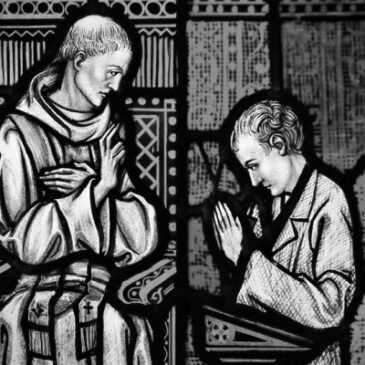Many people have asked me what inspired the lyrics of Horror Sacri. Why did I choose this subject? What is my personal story behind the album? It’s not easy to answer briefly, because every line of this record is the trace of deeply personal experiences and a long inner journey. But I will try to explain why this album was born, and why it turned out the way it did.
The traces of a childhood
I grew up in a very strict, deeply religious Catholic family, at a time when Hungary was still under communist rule. Religion was not looked upon favorably in those years; people of faith were often met with suspicion, sometimes even subjected to smaller or greater forms of discrimination. This created a strange duality: on the one hand, it was a closed and sheltered world where there seemed to be ready-made answers for everything; on the other hand, it was a narrow and limiting system, where freedom and questions born of doubt had little or no room to breathe.
As a child, I absorbed this atmosphere completely. Every aspect of daily life was woven through with religious rules: how to behave, what to think, whom to befriend, what to read or listen to. This was the world I grew into, and its patterns left deep marks on me—for better and for worse.
Religion and its distortion
It is important to clarify: I never had a problem with religion itself. Authentic faith—rooted in selfless love, forgiveness, and turning toward the other—remains a value to me even today. What became oppressive was a distorted, simplified, everyday version of religion: something that many live not as faith, but rather as custom and superstition.
The Judeo-Christian tradition speaks of God as pure love, yet it is often infused with a certain “fiscal” logic: God as judge, weighing every deed, holding us accountable in meticulous detail. In everyday life this easily becomes the image of an all-seeing inquisitor: not a loving Heavenly Father, but a merciless examiner who records every small misstep. In this way, faith ceases to be a liberating force for many, and instead turns into a burden heavy with fear and compulsion.
It is not religion itself that breeds this anxiety, but its vulgar, simplified, fear-soaked version, where the place of transcendent reality is too often taken over by superstition, prohibitions, and guilt-inducing messages. This is the kind of everyday religiosity that does not open up the world, but narrows it.
The inner inquisitor
As a child, I lived through all the consequences of this environment. The constant feeling that there was always a rule I hadn’t kept perfectly, or a thought for which I should feel guilty, slowly seeped into me. No matter how hard I tried to comply, I always felt inadequate. And so I became my own inquisitor: a voice within, always whispering self-criticism, always saying, “You are never good enough.”
This experience had a double edge. On the one hand, it gave a certain sense of security—I always knew what I should be doing. On the other, my doubts grew stronger: does anyone—whether a person or an institution—really have the right to regulate every detail of my life with such authority? Do we truly have such certainty about the world that we can lay down unquestionable rules and build entire lives upon them? Or are we all simply groping in the dark, afraid to admit our own uncertainty?
The two faces of Horror Sacri
This duality led me to the medieval concept of Horror Sacri. For me, the term has two faces.
The first is the encounter with the transcendent, when one is confronted with their own weakness before something infinitely greater. This can be a moving, even uplifting experience—a mirror showing us our limits and urging us to rise beyond them.
But the second face is much more personal, and one that unfortunately struck me more deeply: the fear and anxiety instilled in us from early childhood. The learned guilt. The endless compulsion to measure up. The feeling of being watched by a judging gaze that records every misstep—and the realization that I had, in fact, become that gaze myself. And finally, the rebellious defiance: “By what right does anyone do this to me?”
Together, these two faces form the essence of Horror Sacri.
What did I want to say with this album?
I did not want to write theology, nor propaganda. My intention was never to attack faith or religion. What I wanted to offer was a confession: a testimony to the experiences and inner struggles that gave birth to these songs. A reflection on how the decades of my life, the fears instilled in me, and the philosophical and theological doubts that grew ever stronger shaped me into who I am.
For me, art is not about proclaiming grand truths, nor about serving ideologies. In my world, art demands only one thing: honesty. The courage to show, without disguise, what we live through and how we see the world.This is why Horror Sacri was born. This album is my personal confession—about fear, guilt, rebellion, and the search for a path. If even one person who listens to it recognizes themselves in it, and feels a little less alone with these emotions, then it was worth creating.

